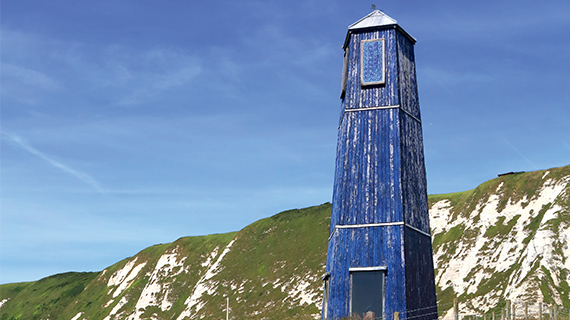Environmental strategy
From the outset, Getlink has been committed to low carbon transport and to preserving the environments in which its infrastructure is located. Responsible, ambitious and pragmatic, the Group is deploying a strategy and concrete actions to respond to the climate and environmental emergency.
Reducing our direct and indirect GHG emissions
In line with European targets and to contribute to the Paris Agreement’s 2°C trajectory across the value chain, Getlink has set itself an ultimate goal of carbon neutrality by 2050, based on medium-term milestones focused on reducing intrinsic emissions. The Group has set itself a reduction target of minus 30% by 2025 and minus 54% by 2030.
Linking financial and climate performance: the low-carbon margin indicator
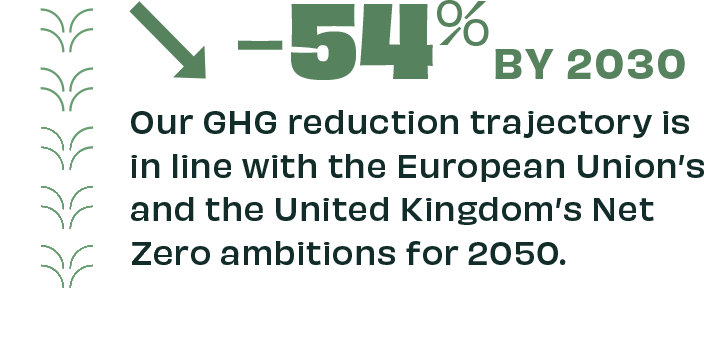 In 2022, Getlink was the first industrial and services organisation to create a financial indicator in anticipation of the gradual Europe-wide application of the “polluter pays” principle. It is thus creating a new indicator, which will be monitored every year: the decarbonised margin indicator.
In 2022, Getlink was the first industrial and services organisation to create a financial indicator in anticipation of the gradual Europe-wide application of the “polluter pays” principle. It is thus creating a new indicator, which will be monitored every year: the decarbonised margin indicator.
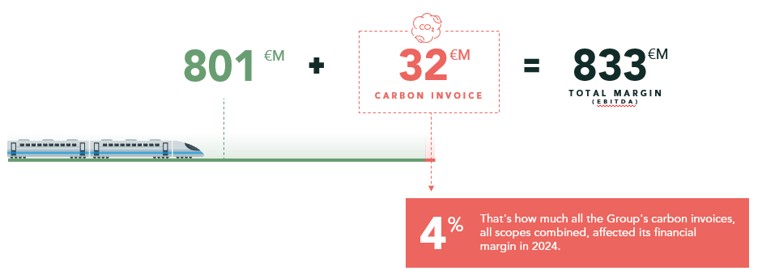

« Our 96% decarbonised margin confirms the sustainability of the Group’s activities, in an objective way that is comparable with our peers. »
Biofuels, a major lever for reducing the intrinsic GHG emissions of Europorte, our rail freight subsidiary
Consumption of NRD*, fuel oil, petrol and diesel is the Group’s biggest source of emissions, ahead of electricity-related emissions. Although virtuous compared with road freight, rail freight can improve its climate performance by using biofuel on non-electrified sections of the networks. In 2021, we were the first to trial with Europorte the substitution of NRD for locomotives by Oleo100 biofuel produced by Saipol (a subsidiary of the Avril group).
This biofuel, produced from 100% French rapeseed residues, reduces greenhouse gas emissions by 60%, corresponding to a reduction target of more than 9,000 tonnes of CO2 per year by 2030.
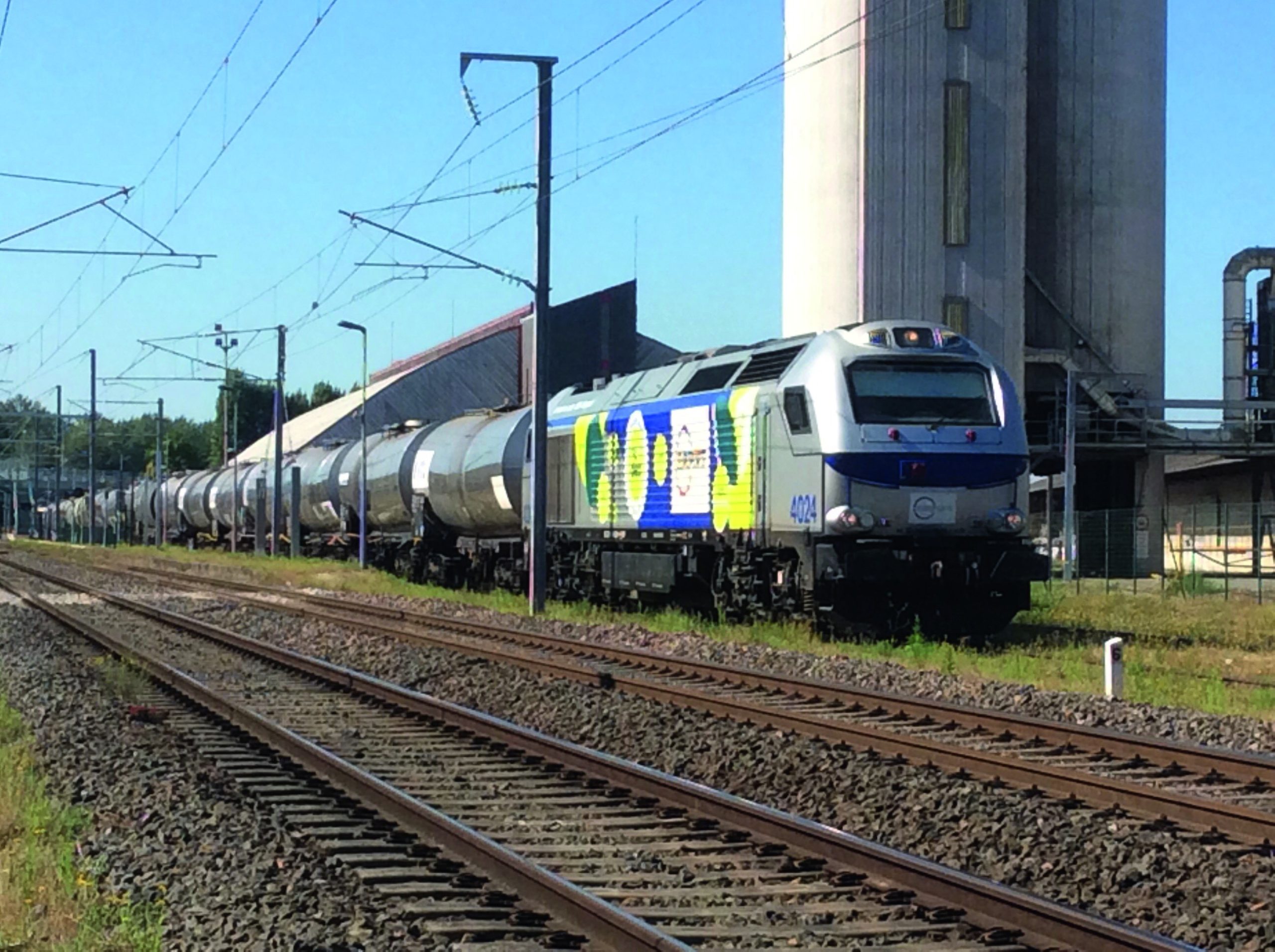
Decarbonising our electricity consumption
73% of the electricity consumed by Getlink in France comes from renewable capacities.
75% of the Group’s electricity consumption is low-carbon.
Since 2018, Getlink’s electricity supply in the UK has been part of a Blue for Business contract guaranteeing 100% nuclear supply. The Group is continuing this trend by pursuing initiatives to decarbonise the electricity consumed, including by purchasing Guarantees of Origin and developing additional renewable energy production capacity on and off our sites.
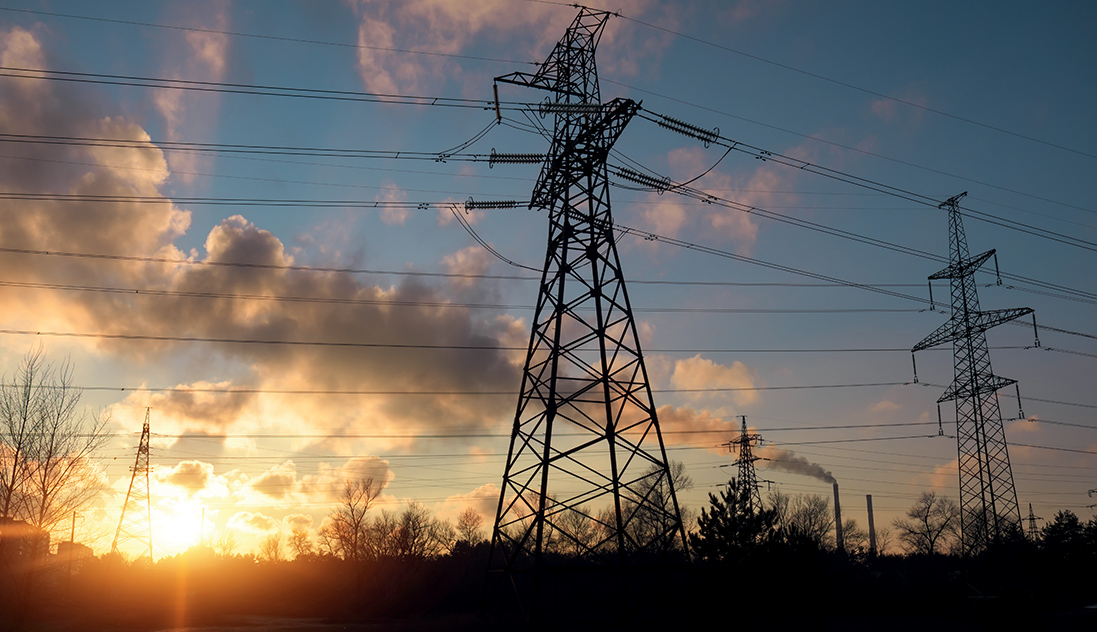
A decade of committing to reduce our operational emissions
The Group’s operational emissions are linked in particular to leaks of three types of substance, which are essential for the safety of infrastructures:
- Halon-1301, used as an extinguishing agent;
- Refrigerants used in the cooling circuits of the Tunnel and Shuttles;
- the insulating gas SF6 used in electrical substations.
These leaks have a significant impact on the Group’s carbon footprint, given their warming power. A long-term approach has therefore been initiated to replace halon and refrigerants, involving all our teams from engineering to maintenance.
Ultimately, the programme should enable the remaining 52 tonnes of halon to be dismantled.
25% is the share of GHG emissions linked to refrigerant and extinguishing gases in the Group’s total emissions in 2024.
In 2024, an action plan has been initiated for the significant reduction of these fluids. The corrective actions to control the SF6 leaks have been fully implemented.
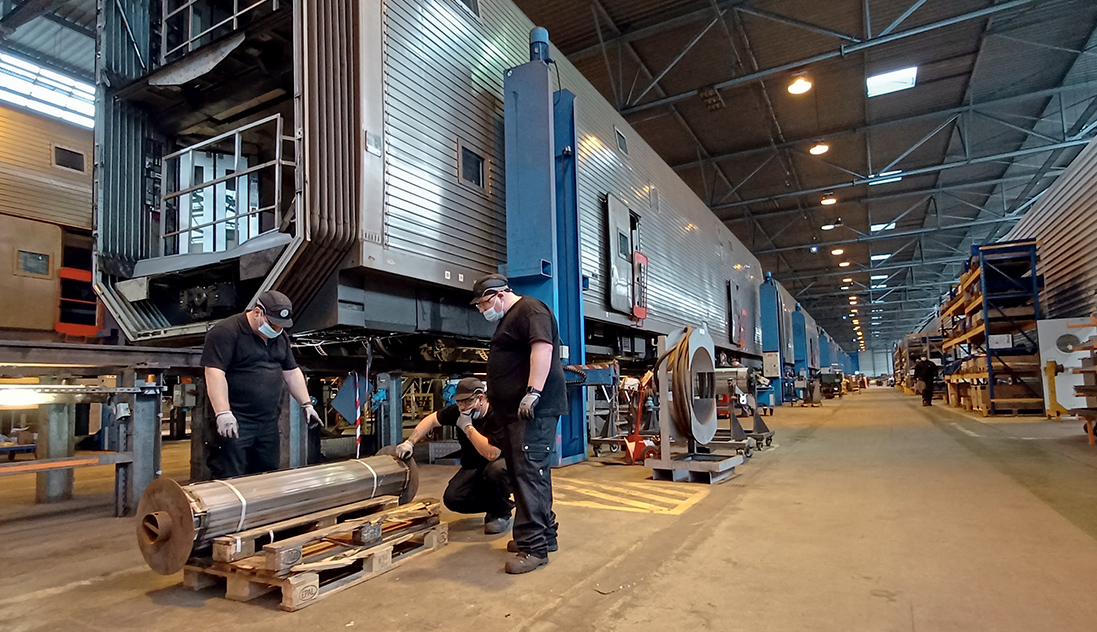
Controlling waste and promoting the circular economy
In the area of waste management, Getlink applies a collection and processing strategy that gives priority to recycling, recovery and reuse. The Group is committed to strict discipline in this area, particularly on major rolling stock and infrastructure renewal projects.
As an example, from 2021 to 2023, the 6 first-generation Truck Shuttles (“Breda” type) will be gradually replaced by new Shuttles with reduced maintenance costs.
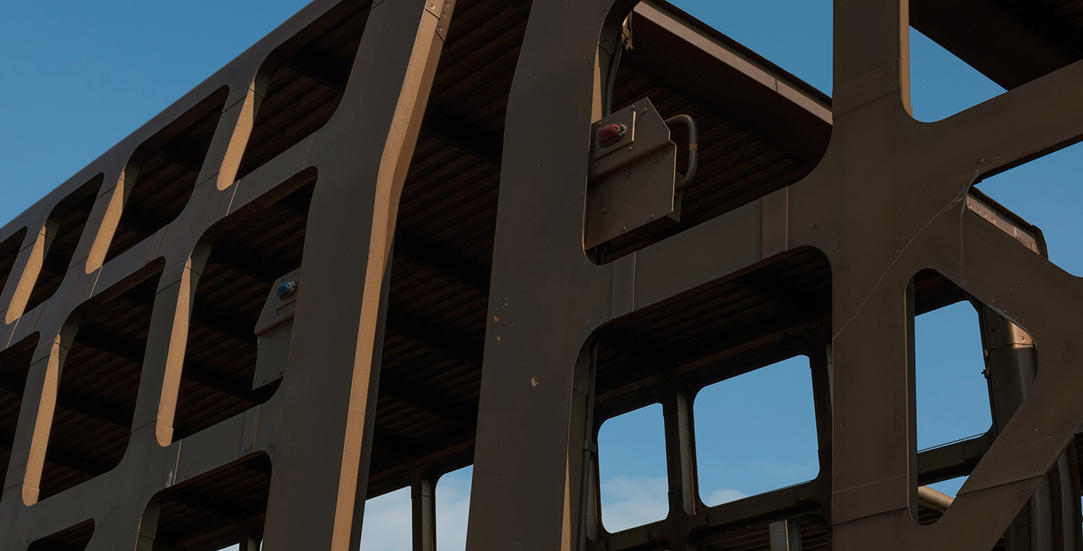
The replacement of the Breda Shuttles, an example of responsible waste management
From 2021 to 2023, the six first-generation Truck Shuttles (“Breda” type) will be gradually replaced by new Shuttles with reduced maintenance costs.
Over 98% of the weight of Breda Shuttles has been recycled, i.e. almost 7,800 tonnes over 3 years (mainly steel, stainless steel and aluminium).
-
80%
is our waste recovery rate in 2024 for the Group
-
1900
tonnes of ballast reused at the UK terminal in 2021
-
98%
of the weight of Breda shuttles between 2021 and 2023 been recycled
Helping to preserve natural environments
Committed from the outset to preserving natural environments, the Group operates some of the most environmentally-friendly mobility solutions and infrastructures. Its initiatives to protect biodiversity, control water consumption and improve air quality are an integral part of its development strategy.
For several years now, the Group has been working to reduce the use of plant protection products, which are used in particular to maintain green and mineral spaces, and to keep safety equipment and railway areas in operational condition. At the French terminal, for example, 100% of phytosanitary products have been replaced by mechanical and manual weeding techniques.
Getlink is also committed to monitoring and controlling air quality and the impact of emissions from its activities. For Eurotunnel, this has been a concern since the start of the Concession in 1986.
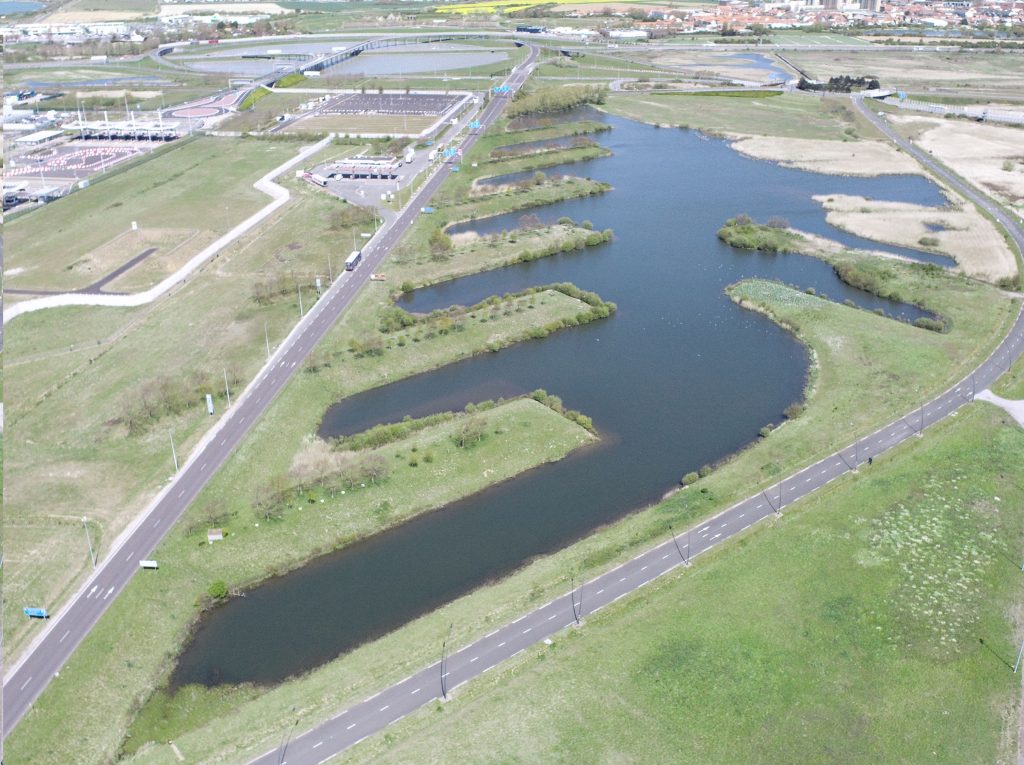
The “Ornamental Gardens” on the edge of the Coquelles terminal are a much-appreciated rest area for migratory species and an essential nesting spot for many birds.


The Samphire Hoe site, a nature reserve covering about thirty hectares at the foot of the white cliffs of Dover, was created by reusing five million cubic metres of chalk and marl extracted from the English Channel subsoil when drilling the Channel Tunnel.
With 220 bird species, 200 plant species (including many rare orchids, such as spider orchids) and 30 butterfly species, Samphire Hoe nature reserve received its 17th Green Flag Award in 2022, in recognition of its high ecological quality.



